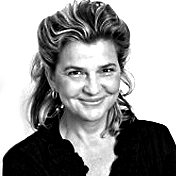In October, a New York judge ordered that the prominent American litigator David Boies be barred from representing Virginia Roberts Giuffre, his client and one of the many victims of the now deceased financier–sex trafficker Jeffrey Epstein, in her lawsuit against Alan Dershowitz, the former Harvard law professor. Although Giuffre would have to find another attorney, the good news was that she could go forward with her defamation suit against Dershowitz, Epstein’s former lawyer, for calling her a liar—“a certified, complete, total liar”—for alleging that the 81-year-old lawyer had sex with her on multiple occasions when she was 16.
For Boies, the decision was a serious setback. The lawyer to at least three of Epstein’s victims, including Giuffre, the famous litigator had become nearly as central to the case as Epstein. They were almost twinned. The white knight to the financier’s dark prince, Boies grabbed the chance to be a fierce advocate for Epstein’s victims. He threatened on the British television show Panoramato subpoena Prince Andrew, one of the men to whom Epstein is alleged to have pimped out Giuffre and other under-age women, which the prince has repeatedly, and recently very publicly, denied. In early November, Boies went so far as to personally sue Dershowitz, a longtime foe, for defamation after he publicly suggested that Boies was trying to extort him. It was Dershowitz’s extortion allegation that triggered Boies’s removal from Giuffre’s case against Dershowitz—on the grounds that Boies was a possible witness. For the 78-year-old Boies, it seemed, the Epstein legal drama had become a crusade, a desperate effort to launder a once gleaming reputation that had been soiled.


